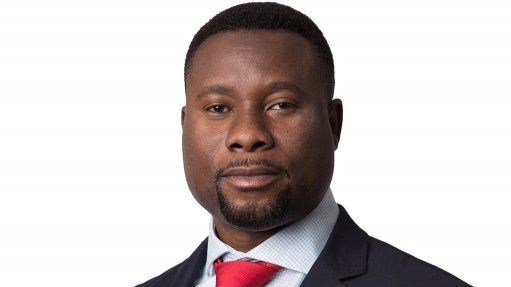
NORMAN MALEKA There will be demand for after-sales support in Tanzania, owing to new industries established in the country
Despite political tension in Tanzania impacting on the mining industry, with several operations subsequently closing, SEW-Eurodrive continues to have a strong presence in the country, with Tanzania as its main hub for East Africa.
SEW-Eurodrive South Africa national sales manager Norman Maleka explains that the recent challenges faced by mining companies Acacia Mining and Petra Diamonds are good indicators of the current state of the mining industry in Tanzania, and how it is impacting on equipment suppliers in particular.
In July, Acacia Mining was handed a $190-billion tax bill by the Tanzanian government, which caused some of the mines owned by the gold miner to scale back production. In September, Petra Diamonds had a consignment of diamonds confiscated by government, ostensibly owing to an under-declaration of its mineral exports.
Tanzania said it planned to nationalise the diamonds, with an estimated value of $29.5-million. Petra’s Williamson mine had valued them at $14.798-million. Petra owns a 75% stake in Williamson Diamonds, with the remaining shares held by government.News agency Reuters reported that the mine accounted for 18% of Petra’s total revenue last year.
Maleka says coal mining in Tanzania will be the main focus for the mining industry going forward, owing to the majority of the country’s coal mines being State-owned, with future coal mining projects having already been approved by government.
He adds that the situation for mining in Tanzania will change for the better once investors realise that the new Tanzanian government is serious about the increased taxes and the collection thereof.
Tanzania has increased royalties from 4% to 6% on gold, iron, silver, copper, platinum, nickel and tin, as well as diamonds, tanzanite, rubies, garnets, emeralds, alexandrite sapphires, kaolin, phosphate, lime, gypsum, diatomite, bentonite, vermiculite, salt and beach sand.
It has been alleged that the previous regime in Tanzania was lax when it came to tax collection, with most investors accustomed to bringing equipment into the country without paying the correct duties, and corrupt government officials believed to sometimes waive import duties.
President John Magufuli won the Tanzanian elections in 2015 and came into power in 2016, fighting against corruption and reviewing the country’s tax records from the past five years to determine which duties and taxes were owed, and by whom.
This caused the economy to slow down, as most businesses reacted by putting investments on hold in a ‘wait-and-see’ approach. Now in Magufuli’s second year in power, his government is thought to have become more serious in the fight against corruption and the collection of unpaid taxes.
The mining companies that allegedly failed to pay royalties to government have been asked to do so from the day their operations started in Tanzania.
Meanwhile, other countries in Africa, such as the Democratic Republic of Congo (DRC), are still facing political instability, which has made entering that market a challenge, says Maleka.
“In the DRC, once there is political stability and security, business will also start to flourish,” he highlights.
Confident of African Growth
Maleka points out that SEW-Eurodrive South Africa is confident about its growth in African markets, owing to positive feedback from existing clients regarding its products and after-sales support, boosting the company’s confidence with regard to its prospects on the continent. “Our delivery time is good and the replacement-parts market is significant,” he highlights.
There is subsequently a large demand for after-sales support, owing to the industries already well-established in Tanzania and other African countries, says Maleka, with SEW-Eurodrive South Africa seeing particular growth in Tanzania’s cement, food and beverage, and sugar industries, for example.
“There will be demand, owing to new industries established in Tanzania and the industrialisation focus of the current regime with regard to sugar, cement and milling, among other industries.”
Uganda, Ethiopia and Rwanda are also potential markets for SEW-Eurodrive products, says Maleka, who emphasises the importance of increasing focus on, and frequent visits to, these countries to further expand the company’s presence in Africa.